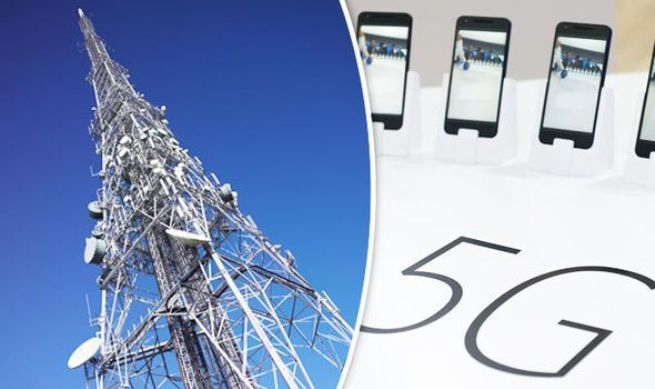EXCITING NEWS: TNG WhatsApp Channel is LIVE…
Subscribe for FREE to get LIVE NEWS UPDATE. Click here to subscribe!
The Executive Vice Chairman of the Nigerian Communications Commission (NCC), Prof. Umar Danbatta, says that the present misinformation and misrepresentation of 5G technology has the potential to derail its implementation in the country.
Danbatta, represented by Dr Ikechukwu Adinde, Director, Public Affairs of NCC, said this at the opening of a two-day capacity building for members of the Nigeria Information Technology Reporters Association (NITRA), Abuja Chapter, on Tuesday in Abuja.
The programme organised by the NCC, was with the theme: “Capacity Building for Telecom Sector Reporters”.
The executive vice chairman noted that a lot of falsehoods and misinformation had been peddled both on the social media and traditional media outlets, with regard to the health and safety implications of deploying the 5G technology in Nigeria.
He decried a situation where many Nigerians including citizens from other climes, believed that the introduction of the new technology was responsible for the spread of the COVID-19 pandemic.
Danbatta noted that the misconception of the technology was even made worse because many journalists and telecoms consumers lacked sufficient information about the 5G technology.
“The misinformation/misrepresentation of 5G technology has the potential of derailing the launch/implementation of this new technology in our clime.
“Many Nigerians including citizens in more civilised countries were hooked on the notion that the introduction of 5G technology was the reason behind the spread of the novel COVID-19 Pandemic.
“This misconception was even made worse because those saddled with the responsibility of informing, educating and enlightening the average Nigerian telecom consumers were also bereft of the knowledge of this new technology and hitched a ride on the band wagon of doubters.
Danbatta however, underscored the indispensability of 5G technology, adding that its impact would be much greater than the current 4G network.
While listing out the benefits of the new technology, he quoted a recent report by Qualcomm, which predicted that 5G would affect the global economy and drive its growth exponentially.
According to him, 5G’s full economic effect will likely be realized across the globe by 2035, supporting a wide range of industries and potentially enabling up to $13.2 trillion worth of goods and services.
“This impact will be much greater than the current 4G network.
“5G, when fully deployed, will provide increased speed and bandwidth as well as provide deeper coverage to reach people in rural or challenging locations.
“In addition, 5G will provide strong security for the various sectors of government and private organizations.
“Due to its sheer scale and scope, the International Telecommunication Union (ITU) predicts 5G will accelerate the achievements of all the 17 Sustainable Development Goals (SDG’s) from affordable and clean energy to zero hunger,” he said.
The executive vice chairman said that the NCC would ensure that the information reached an average Nigerian timely and accurately.
He also said that the Commission would maintain the training periodically for stakeholders in the media and to support capacity building and other initiatives, which fosterEd closer interaction and build stronger relationship with NITRA.
“This is the reason why training such as this is necessary for members of NITRA who have continued to cover the ICT industry in Nigeria.
“We will ensure that the NCC maintains this training periodically for our crucial stakeholders in the media to ensure that the information that reaches the average Nigerian is accurate and timely.
“It is our duty and responsibility to ensure that whatever we want to introduce to the Nigerian telecoms space is well understood by Nigerians and all those who make use of our telecoms services.
‘The onus is on all of us here today to make sure that we take this training seriously and take advantage of it to expand on our horizons.
“This is very necessary so that when we report events or activities relating to the industry, we are able to translate them into a language that the common man will readily understand.








